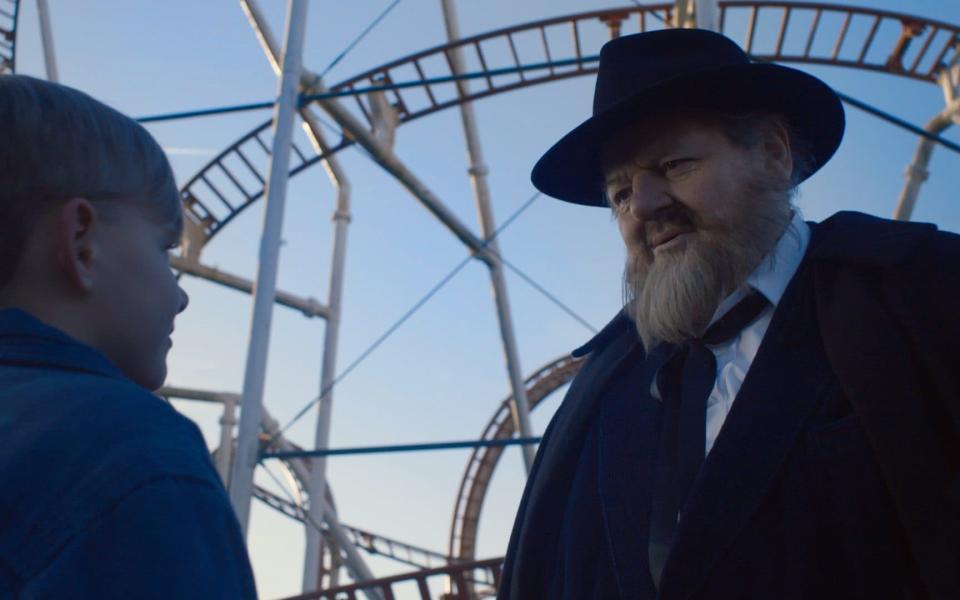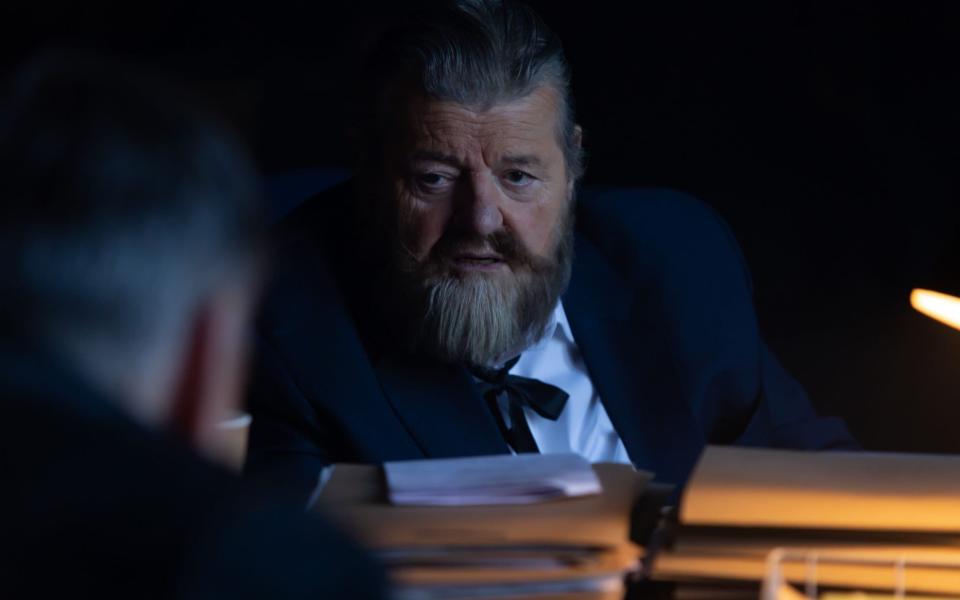Urban Myths: Orson Welles in Norwich, review: Robbie Coltrane is great but this playlet is not

Sky channels seem to throw vast amounts of money at their original productions but often I can’t for the life of me figure out who they’re aimed at. Urban Myths: Orson Welles in Norwich (Sky Arts) was textbook.
The Urban Myths strand – stand-alone playlets depicting apocryphal moments from showbiz history – is now on its fourth series and continues to attract A-list acting talent. I just can’t imagine that many people watch it. These well-appointed one-offs have the distinct whiff of expensive vanity projects.
The latest throwaway confection saw Robbie Coltrane make a return to the small screen to play Orson Welles. It told the true-ish tale of how the film director went missing in Norfolk in 1972 while working on his forgery docudrama F for Fake – punningly retitled here as F for Fakenham.
Exiled from Hollywood, the skint cinematic maestro was offered an unlikely gig in Norwich, narrating the spooky series Great Mysteries. “It’s out of town,” his agent told Welles. “Like Las Vegas.” “No, you’re thinking of Swaffham,” deadpanned a local. Cue fish-out-of-water whimsy, Alan Partridge-esque Norfolk gags, a Burt Reynolds lookalike and a staged kidnap.
Coltrane was terrific, conveying his hero’s hulking physicality, rumbling baritone and charismatic presence with wry aplomb. However, he was almost upstaged by his preposterous stick-on beard, which resembled a pot brush made from badger fur.

Derry Girls’s excellent Saoirse-Monica Jackson held her own as an ambitious newsreader who spotted a chance to further her career. The period styling, especially the Sale of the Century references and retro Anglia TV graphics, were pleasingly nostalgic. Unfortunately, the script wasn’t half as clever. Was it comedy? Was it drama? And crucially, what was the point?
As a faux documentary about a faux documentary, it soon disappeared up its own faux fundament. This had pretensions to be a playful philosophical treatise about the nature of reality and illusion.
It ended up more like a self-indulgent student production. F for Flop, more like.

 Yahoo News
Yahoo News 